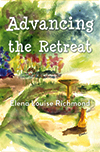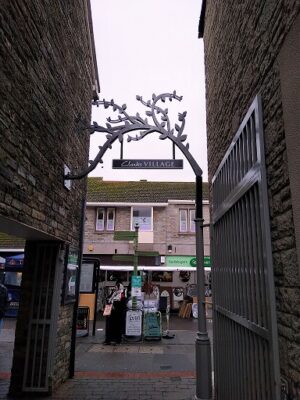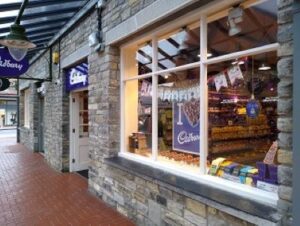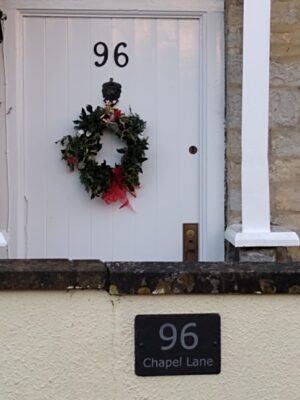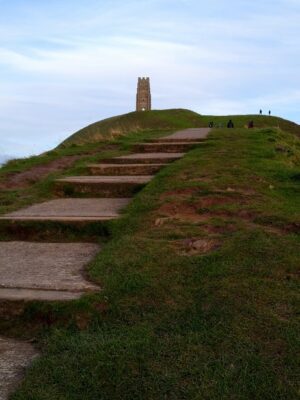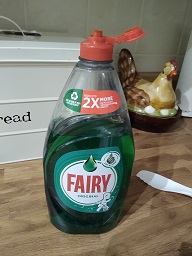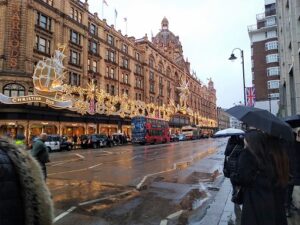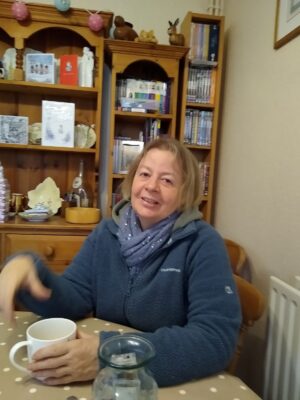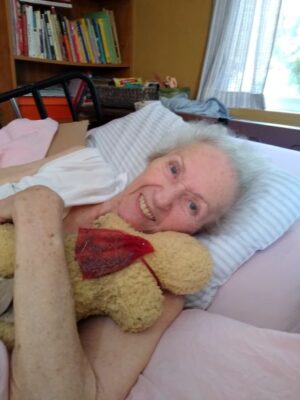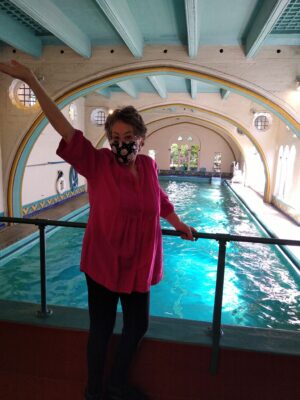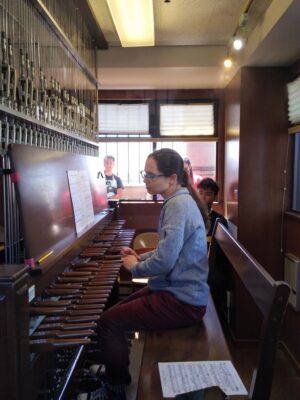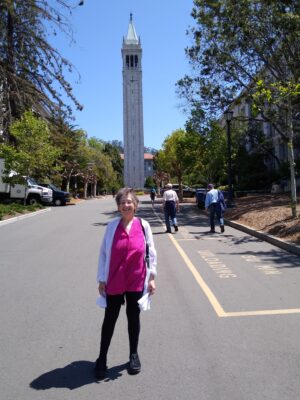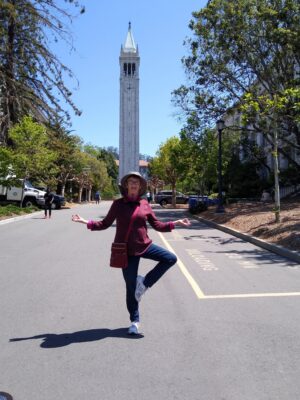A Village Christmas, Part 2: The Tor, lambs and love
From the Castle Cary train station, we “did a shop” in Street (that’s a town.) It seems to me that we “did a shop” almost every other day. And the washing machine was going 24/7—more about that later. On that first day, Sue took me around Clark’s Village, an outlet mall built on the site of the first Clark’s shoe factory. Jet-lagged and fuzzy-headed, I stumbled like a hypnotized person into Radley London, Weird Fish, White Stuff, Fatface (look them up) AND the Cadbury Shop where I bought bags of Cadbury chocolates.
I bought Christmas cards in a charity shop. All the charity shops (thrift stores)–British Heart Foundation, Sue Ryder, Cancer Research, Oxfam—sell Christmas cards, the proceeds of which go to the charity. Touching, clever, pretty, Sue and Wendy do a massive business in sending and receiving cards.
Earlier in the month, in Seattle, I had ignored everything I could with the excuse, “Oh, I’m sorry, I am getting ready to go overseas” but I did want to send some cards and not just to gloat that I was in England for Christmas.
At last we were in Butleigh, a village of about 900 people in Somerset, three miles from Glastonbury and nine from Wells –if that helps you. Wendy turned onto Chapel Lane and into the drive of the stone house with the rabbit hutch to one side. There are no longer rabbits in the hutch. Firewood, gardening supplies and other things are stored inside and it serves as a place to hang the washing and as a roof for Izzy the cat to sit on as her sister Lizzy used to do.
One of my first actions was to pay homage to the cats and we began as we meant to go along: Tabsy crawled on my lap and dug his claws into me to knead and purr. Izzy allowed me to pet her and fuss over her but would not sit on my lap. Seamus leapt up in alarm and hid whenever he sensed me near.
During the pandemic Wendy and Sue turned a mother-in-law apartment, heretofore called The Cottage, into an Airbnb. It was beautifully appointed (they are Super Hosts—that’s the industry term) and scrupulously clean. Though connected to their part of the house, it had its own entrance and it was to be my home for the next two weeks.
We ate cheese and biscuits and salad, salad being defined as lettuce, cucumbers and tomatoes arranged artfully on a plate, and talked. Then we had tea and cake and talked. Both Wendy and Sue were sick with appalling coughs, congestion and sore throats – and the most they would ever say about being ill was that they were doing poorly–and I resigned myself to becoming sick before too long. But that first night I was merely jet-lagged.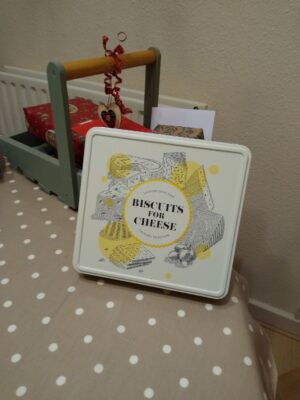
In the evening, I joined a group of villagers to carol around the village. I went down the drain (the drain is a passageway resembling a tunnel that was at one time an actual drain but now functions as a foot path. I never like to miss a chance to say I am going down the drain), outfitted with a torch (flashlight.) It was pitch black except for a few street lights around the shop and the glow from cottage windows.
At the village shop I met up with a small group of glorious voices, led by David the choirmaster at St Leonard’s parish church. Latching onto a wonderful bass named Brian, I sang along side him, eventually gushing all over him about his voice for which he seemed both pleased and bemused. One woman had descants stored in her head from her school years. On the last verse of every carol, she let another one rip. It was thrilling.
We sang songs I knew but that we rarely hear in the states. “Once in Royal David’s City,” “Christians Awake,” “Infant Lowly,” “As With Gladness.” I had first heard “Christians Awake” when I stood next to Hazel (the oldest generation I have met of my family) on Christmas Day in 1991 in Metherell Baptist Church, Cornwall. She was planted on the floor like Birgit Nilsson in Die Walküre and held forth with “Rise to adore the mystery of love” with its beautiful melodic swoop.
We sang “Ding Dong, Merrily on High” several times –merrily, “O Little Town of Bethlehem” English tune; and the odious “Away in a Manger,” the only thing making it bearable was the English tune.
I was my usual American-on-holiday self, chatting up people I might have walked down the far aisle to avoid if I’d been home. I can imagine them complaining over breakfast the next morning about the brash American with the crude speech patterns.
We sang for Wendy and Sue after which I cut out and followed them inside where Christmas music accompanied a small cottage industry of wrapping paper and gifts boxes, scissors, cello tape, gift cards and a mile high stack of Cadbury chocolate boxes and other delectables. So industrious were they that I was inspired to sit down with my ten Christmas cards and write them all. (If you didn’t get one, it’s the fault of the Royal Mail; it was on strike. What mail didn’t go out late probably got lost and that’s where your card is.)
My first morning in Butleigh, I lay in bed until I felt the heat come on. Running through my head was the wonderful line from Once in Royal David’s City: “When our eyes at last shall see him.”
Before Sue and Wendy were up, I was out the door for a walk around the village. I wanted to re-visit the field where I had watched the sheep at the same time that the church bells were ringing and had thought, “Could anything be more English?” I found the field but the sheep had moved. Funny how that works. Then I found the sheep and there were week-old lambs. I waved at the farmer—Keith– and asked if I could come in and look at them.

Back home, Sue was up and ironing.
“Is it “Once in David’s Royal City or “Once in Royal David’s City,” I asked. It was reminiscent of Ruth’s Kris Steakhouse.
“Once in Royal David’s City.”
“Thank you. How are you feeling?”
“About the same.” Violent coughing ensued.
Sue had to work at the village shop in the afternoon. Wendy proposed that she and I walk “up the tor.”
“Are you sure you’re up for that?” I asked.
“Oh, I’m all right.” Violent coughing ensued.
I follow a woman on social media, Michelle Cowbourne, who walks up the tor every morning before dawn and takes the most glorious photographs. Earlier I told Wendy that I wanted to walk up the tor before dawn.
“Well, you can do that,” Wendy said. But there was no offer to take me at that hour or show me how to get started. We set off at a more convenient time.
The tor is a dizzying climb and I was still quite jet lagged. The wind was fierce and I thought several times I was going to topple down the hill. We walked up the steep backside and came down the gentler grade in the front.
The Glastonbury tor is a 518 feet hill that used to be surrounded by water. At its top is St Michael’s tower. Looking over the Somerset levels it’s easy to imagine Avalon rising out of the water and the mist. The atmosphere is otherworldly –or at least it is when you’re jet-lagged and have vertigo. I can see why people come to commune with the ancients.
Wendy and I carried on to Arthur’s Court in Street, the care home where her mother Pam now lives. Pam has shrunk to her bones since the last time I saw her and she can’t form words that are understandable but she is still vocal and babbles on either in pleasure or irritation. I was so pleased that she recognized me. We looked at photos from her and Mervyn’s trips to Seattle and I fed her Cadbury Dairy Milk buttons.
My favorite part of this visit, however, was watching Wendy’s face as she helped her mother eat. The love in her eyes. The patience, the sadness, the acceptance. The love.
 RSS Feed
RSS Feed